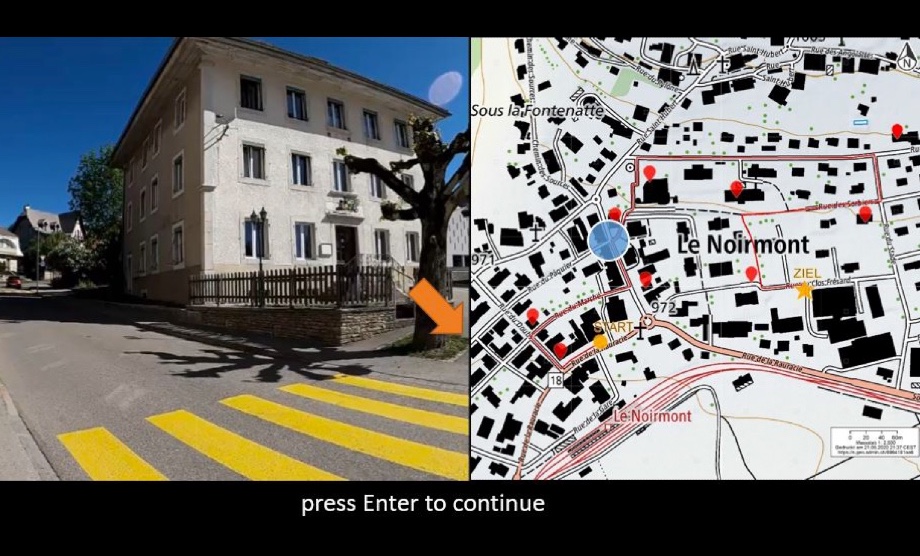GIScience Conference 2021
On September 29, 2021 Dr. Sara Lanini-Maggi with Dr. Ian Ruginski and Prof. Dr. Sara Fabrikant presented their research on emotional navigation instructions and their impact on spatial learning and map use while navigating unfamiliar environments at GIScience conference:

Proceedings (short papers), 11th International Conference on Geographic Information Science, Sep. 27–30, 2020/1, Poznan, Poland.
Abstract
Even if we are not aware, our emotions can influence and interplay with our navigation and use of mobile navigation aids. A given map display can make us feel good by reminding us of pleasant past experiences, or it can make us feel frustrated because we are not able to understand the information provided. Navigation aids could also make a given landmark emotionally charged, and thus more salient and memorable for a navigator, for example, by using an auditory narrative containing emotional cues. By storytelling, it would also be possible to provide details about a given landmark and connect proximal landmarks to each other. But how do navigational instructions in the form of emotional storytelling affect spatial memory and map use? Results from a preliminary study indicated that a video presentation viewed from a first person perspective is looked at more often than an abstract map, and this evidence becomes even stronger when instructions are emotionally laden. We discuss results in the context of place meaning and how emotions’ role in navigation should be further assessed, in particular to increase spatial learning from navigation aids.